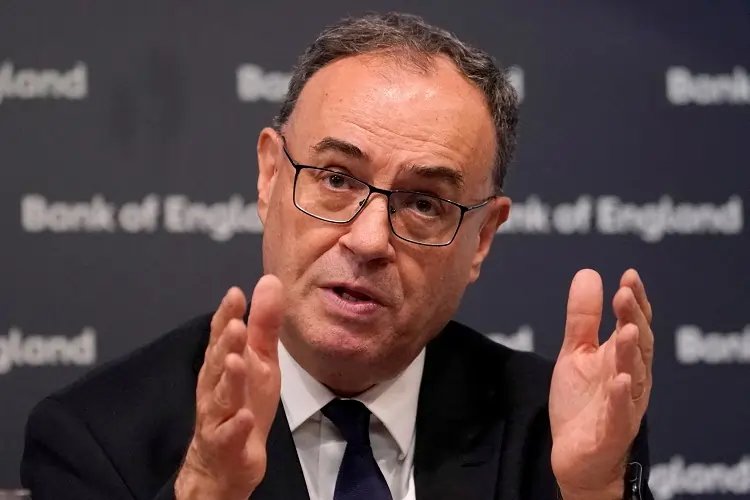Bank of England readies new rate cut as budget hangs over outlook


By Andy Bruce
LONDON (Reuters) – The Bank of England is likely to cut interest rates on Thursday for only the second time since 2020 but the big question for investors is whether the BoE sends a signal about its subsequent moves after the government’s inflation-raising budget.
The BoE has had almost a week to chew over new finance minister Rachel Reeves’ first set of tax and spending plans, which Britain’s official budget forecaster thinks will raise inflation as well as economic growth next year.
Consumer prices look to rise by 2.6% in 2025, according to the Office for Budget Responsibility’s forecasts, considerably above the BoE’s 2% target, largely because of the budget.
That projection was a big reason why investors have reeled in their bets on repeated interest-rate cuts next year.
The outlook has also been clouded by the economic agenda of U.S. President-elect Donald Trump, who has said he will hit imports from all countries with tariffs.
But BoE Governor Andrew Bailey and his colleagues are unlikely to give a detailed view on Trump’s return to the White House, given they had little time to consider the implications of the U.S. election ahead of their Wednesday decision deadline.
Even before Reeves’ high-borrowing, high-spending budget announcement, investors had singled out Britain as an inflation outlier because of its stubbornly fast wage growth and other price pressures emanating from the domestic services sector.
All 72 economists polled by Reuters think the BoE will trim its Bank Rate to 4.75% from 5.0% on Thursday and financial markets on Wednesday showed a 97% chance of such an outcome.
Investors were also pricing in between two and three further such cuts by the end of 2025 – down from almost four before Reeves delivered her budget.
By contrast, markets are pricing in more than five rate cuts between now and the end of 2025 by the European Central Bank.
“The budget won’t change the Bank’s decision to cut rates again this week,” said James Smith, developed markets economist at ING.
“But it does question our long-held view that rate cuts will speed up from now on,” he said. “The risk is that this happens later, and the Bank decides to keep rates on hold again in December.”
Smith said it was unclear whether the BoE’s forecasts will reflect Reeves’ plans or be limited to a few lines in the minutes of the Monetary Policy Committee’s meeting.
Typically Bank staff complete a final draft of their economic forecasts a week before their vote on interest rates, which would have been around the time the budget was published.
British government bond prices slumped immediately after the publication of the OBR’s assessment of the budget, which showed Reeves meeting her new fiscal rules by a slim margin, plus higher forecasts for the Bank Rate and government bond yields.
While most economists expect a rate cut on Thursday, they do not expect to see another rate cut as soon as the BoE’s next meeting in December, given the higher inflation outlook after the budget.
It is customary for the BoE to brush off changes in fiscal policy, but it would have to be tone-deaf to do that this time around,” said Andrew Wishart, an economist with Berenberg Bank.
“The BoE should highlight fiscal policy as a reason to stick to ‘a gradual approach to removing policy restraint’: read one cut per quarter.”
(Reporting by Andy Bruce; Editing by Rod Nickel)
The Bank of England is the central bank of the United Kingdom, responsible for issuing currency, managing monetary policy, and maintaining financial stability.
Inflation is the rate at which the general level of prices for goods and services rises, eroding purchasing power.
Monetary policy refers to the actions taken by a central bank to manage the money supply and interest rates to achieve macroeconomic objectives.
An interest rate is the amount charged by a lender to a borrower for the use of assets, typically expressed as a percentage of the principal.
Economic growth is the increase in the production of goods and services in an economy over a period of time, often measured by GDP.
Explore more articles in the Banking category











